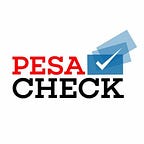PARTLY FALSE: EU has banned Kenyans from entering Europe due to increased cases of COVID-19
Only visitors from Rwanda will be allowed into the EU, but Kenya, Uganda, Ethiopia and Zambia are not on safe list at the moment.
An article claiming that the European Union has banned Kenyans from entering Europe due to the COVID-19 pandemic is PARTLY FALSE.
The article further claims that citizens from Uganda, Ethiopia, Zambia, and Rwanda will be allowed to visit Europe beginning July 1, as the continent eases travel restrictions after closing its borders in a bid to contain the spread of COVID-19.
In an official statement released on June 30 by the EU Council, the region, which comprises 27 countries, gave approval to leisure or business trips from 14 countries beyond its borders. From the nations mentioned in the claim, only Rwanda made it to the initial list.
China has also been included in the provisional list, but its citizens’ entry into Europe depends on if Chinese authorities will allow EU citizens to visit the country. Reciprocity is a condition of being on the list.
The statement says non-essential travel restrictions for the 14 countries will be lifted effective July 1, “with this list being reviewed and, as the case may be, updated every two weeks”.
According to the commission, the plan to select the countries was drawn up based on health criteria, including recording a decrease in the number of new infections over the last 14 days.
PesaCheck has looked into an article claiming that the EU has banned Kenyans from entering Europe due to the COVID-19 pandemic and allowed citizens of four other African countries to visit and finds it to be PARTLY FALSE.
This post is part of an ongoing series of PesaCheck fact-checks examining content marked as potential misinformation on Facebook and other social media platforms.
By partnering with Facebook and similar social media platforms, third-party fact-checking organisations like PesaCheck are helping to sort fact from fiction. We do this by giving the public deeper insight and context to posts they see in their social media feeds.
Have you spotted what you think is fake news or false information on Facebook? Here’s how you can report. And, here’s more information on PesaCheck’s methodology for fact-checking questionable content.
This fact-check was written by PesaCheck Fact-Checker James Okong’o and edited by PesaCheck Deputy Editor Enock Nyariki.
The article was approved for publication by PesaCheck Managing Editor Eric Mugendi.
PesaCheck is East Africa’s first public finance fact-checking initiative. It was co-founded by Catherine Gicheru and Justin Arenstein, and is being incubated by the continent’s largest civic technology and data journalism accelerator: Code for Africa. It seeks to help the public separate fact from fiction in public pronouncements about the numbers that shape our world, with a special emphasis on pronouncements about public finances that shape government’s delivery of Sustainable Development Goals (SDG) public services, such as healthcare, rural development and access to water/sanitation. PesaCheck also tests the accuracy of media reportage. To find out more about the project, visit pesacheck.org.
PesaCheck is an initiative of Code for Africa, through its innovateAFRICA fund, with support from Deutsche Welle Akademie, in partnership with a coalition of local African media and other civic watchdog organisations.
